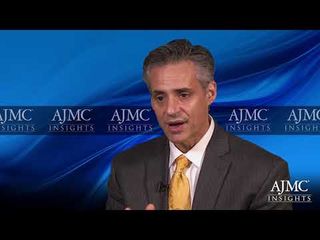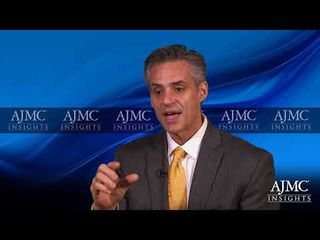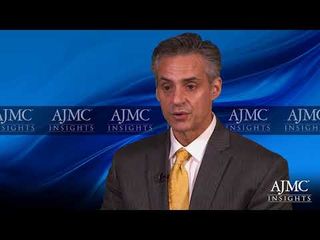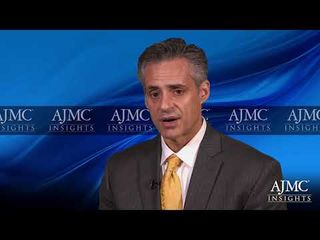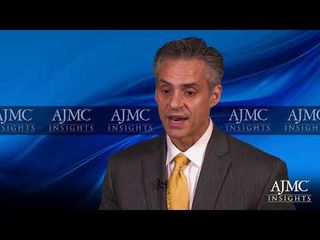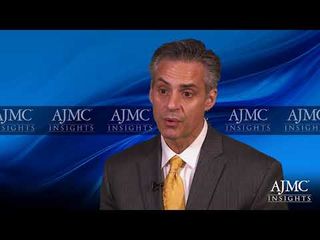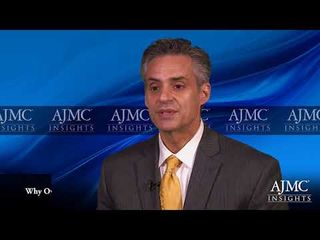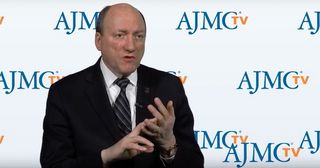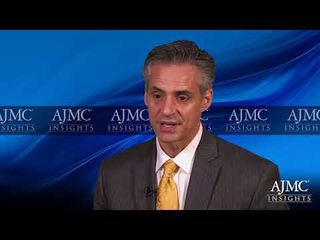
Clinical
Latest News

Latest Videos

CME Content
More News

Precision oncology, or the clinically and financially efficient use of genomically matched treatments and clinical trials, is evolving as a potentially important starting point for cancer care within successful alternative payment models.

A collaborative pilot that involves the California Department of Public Health, St. Joseph Health in Orange County, and UCSF Benioff Children’s Hospital in Oakland is studying whether near—real-time reporting of cancer diagnoses by pathologists, using standardized electronic forms, will permit providers to make more informed and timely treatment decisions.

The monoclonal antibody daratumumab (Darzalex) has been granted Breakthrough designation, the second for this drug, for use in combination with either lenalidomide (Revlimid) and dexamethasone or bortezomib (Velcade) and dexamethasone for patients with multiple myeloma who have received at least 1 prior therapy.

Results from the CheckMate 066 study found that the checkpoint inhibitor nivolumab, which has proven highly efficient in the treatment of melanoma, also performs well in improving the patient’s long-term quality of survival benefit in patients with advanced melanoma.

Loss-of-function mutations in Janus kinase 1 (JAK1) or Janus kinase 2 (JAK2), deletion of the wild-type allele of JAK1 or JAK2, and truncation in the antigen-presenting protein beta-2-microglobulin (B2M) gene have been found responsible for lack of response to interferon gamma in patients with melanoma.

Survival in patients with early-stage lung cancer, particularly those with adenocarcinomas, may be shortened by air pollution, according to a study published in the journal Thorax.

The key in making coverage decisions about the integration of immuno-oncology agents into payment plans is being able to identify the patients who are most likely to benefit while also considering the long-term need for the acceptance of innovation in cancer care when faced with economic constraints, said Michael Kolodziej, MD, national medical director for oncology strategy at Aetna.

A new health services study in JAMA Oncology evaluated the impact of clinical evidence on routine surveillance in ovarian cancer, and found none.

What we're reading, August 17, 2016: Walgreens looks to gamify medication adherence; Aetna warned the Department of Justice that if its merger wasn't approved, it would pull back from exchange participation; and the controversy behind numbers of medication error deaths.

One in 12 people who survive a common cancer will develop a second, unrelated malignancy, the most common of which was lung cancer.

The USPSTF recently sought to update it's screening recommendations for skin cancer and evaluate the harms this type of test poses to the patient, and whether this tool leads to earlier detection of skin cancer than other care means.

Private insurance coverage and living closer to a plastic surgeon’s office encouraged women who had a mastectomy to undergo breast reconstruction, according to a recent study.

While in theory value frameworks are beneficial, a survey from Avalere Health found that not many health plans are actually using them.

What we're reading, August 15, 2016: public health emergency declared in Puerto Rico over Zika virus; the number of local transmission infections of Zika continues to climb in Florida; and men more likely to rate their health as excellent or good compared to 2007.

New research published in JAMA discovered that patient-oncologist discordance was common among the cases studied, and patients were unaware that their opinions differed from their physician’s.

Survey results reveal only 18% of health systems consistently use patient-reported outcomes and highlights key barriers to implementing patient-reported outcome measures in the clinical setting.

What we're reading, August 12, 2016: CMS announces Obamacare plans saw a healthier mix of consumers last year; the number of babies born addicted to opioids tripled in 15 years; and the Obama administration will shift funding from HHS to fight Zika.

What we're reading, August 11, 2016: hospitals are throwing out less-than-perfect organs and refusing transplants; why an increasing reliance on hospitalists is bad for comprehensive care; and removing the roadbloack to marijuana research.

While there is no limit on the number of patients a physician can prescribe buprenorphine when sought for pain, physicians face governmental limitations on prescribing this medication to patients who need it as treatment for opioid addiction, said Kelly J. Clark, MD, MBA, president elect of the American Society of Addiction Medicine. These restrictions have in turn created several patient access roadblocks to the needed medication.

Computed tomography (CT) scans, a common imaging modality, can increase a person's risk of developing cancer later in life.

Higher levels of activity were associated with a significantly lowered risk for outcomes in 5 common chronic diseases; however, the largest gains were made at lower levels of activity with diminishing gains as activity levels increased.

Health insurance status can have a big impact on a person’s health outcomes after they are diagnosed with cancer, according to 2 new studies published in CANCER.

What we're reading, August 9, 2016: tying drug costs to outcomes is the future of drug pricing; Walgreens expands drug take-back kiosk program; patients with atrial fibrillation need to consult a second doctor before receiving a new medical device.

Researchers at the Thomas Jefferson University have developed an online decision-support tool called the Decision Counseling Program that can help for men diagnosed with localized, low-risk prostate cancer make treatment choices.

Between 1997 and 2011 there was a nearly 50% drop in emergency department mortality rates for US adults, most likely because of advances in palliative, prehospital, and emergency care.
